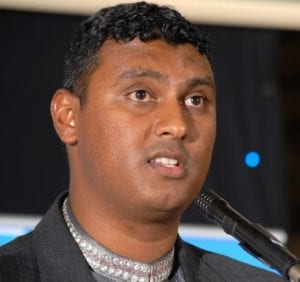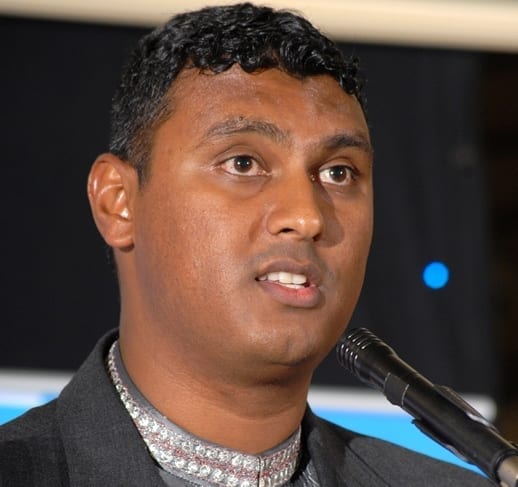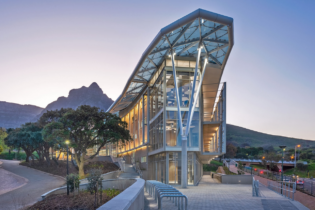These figures in 2016, of which the total was 3,982, showed a significant increase to 54% (2,132) for Black and a decrease to 46% (1,850) for White.
South African Council for the Architectural Profession (SACAP) The SACAP registered 2,400 Black and 3,600 White architectural professionals between 2012 and March 2016. There is a general decrease in the number of both Black and White registrants at SACAP from 2014 to March 2015. This is probably due to the lack of architectural project roll-out from the public sector. The gap difference between the race groups, however, has narrowed over the past 5 years, with 266 Black and 332 White professionals registering in 2016. The South African Institution of Civil Engineering (SAICE) With some 13,000 members, SAICE is the largest engineering voluntary association in South Africa. SAICE CEO, Manglin Pillay, another professionally registered engineer, said that more than 45% of SAICE’s membership is Black. Taking into account South Africa’s history before 1994, Pillay revealed that a more accurate measure of transformation is that almost 70% of SAICE’s membership under the age of 36 is Black. Pillay commended the public sector for driving the transformation agenda through policy. He also said: “The irony of government’s plea for transformation in the sector is that most Black engineering graduates are employed in municipalities, national and provincial government and in state-owned enterprises. “But it is in the public sector that coaching, mentoring and technical engineering supervision — which are critical components for the training and development of engineers — are lacking,” he added. Many local and district municipalities only have junior staff, few of them adequately developed. Many of these are indeed classified as struggling municipalities. Pillay described this as the real challenge. “It is not about Black and White any longer, it is all about experience and inexperience,” he said. He added that the sector has work to do on racial transformation, but the current actual numbers show remarkable progress in the built environment, considering that it takes about 10 to 12 years, excluding basic education of another 12 years, for any individual to accumulate the necessary education and training before they are ready to register as professionals. “There is no quick-fix solution, but we can build on the existing successes,” he said. *This article was written by The South African Institution of Civil Engineering (SAICE)
It is a misnomer that racial and related economic transformation in the civil engineering and construction sector is not happening. The numbers tell a different story.
Over the past eight years, government has consistently invested more than 7% of GDP in infrastructure development, and has made promises to inject trillions of rand into future infrastructure initiatives.
This clearly indicates that the ANC-led administration has embarked on an infrastructure development plan for the overall socio-economic development strategy of South Africa. In doing so, the prospect for racial and radical economic transformation remains opportune.
How then has the sector been performing until now?
The data shows steady growth in the number of lack built environment practitioners in South Africa.
Engineering Council of South Africa (ECSA)
Data from ECSA, the organisation entrusted with protecting the health and safety of the public by registering engineering professionals, shows that the number or registrants of Black engineering practitioners increased from 35% to 46% in all categories from 2011 to March 2016, compared to a drop from 65% to 54% for White practitioners in the same period.
In that time, 9,194 Black professionals registered with ECSA, compared to , 225 White professionals.
It is well-known in the industry that ECSA and its CEO, Sipho Madonsela, a registered engineer himself, are positive about the level of transformation over the past years, and especially among the young people, including females, from disadvantaged. These include engineers, technologists and technicians.
Madonsela also reported that in 2016, for the first time in the history of ECSA, the number of registered engineering practitioners reached more than 50,000. ECSA can be proud of the visible effects of registration seen in the industry.
South African Council for the Project and Construction Management Professions (SACPCMP)
The SACPCMP registered 1,264 Black construction project management professionals since 2008.
Of the total number registered in 2008 (which was 3,276), only 26% (841) were Black and 74% (2,435) White. In 2016, 4,364 engineers were registered, however a significant increase to 48% (2,105) was seen for registered Blacks professionals. This decreased to 52% (2,259) for Whites.
South African Council for the Quantity Surveying Profession (SACQSP)
The SACQSP registered 939 Black quantity surveying professionals since 2011. Of the total number registered in 2011 (which was 3,049), 39% (1,193) were Black and 61% (1,856) White.







